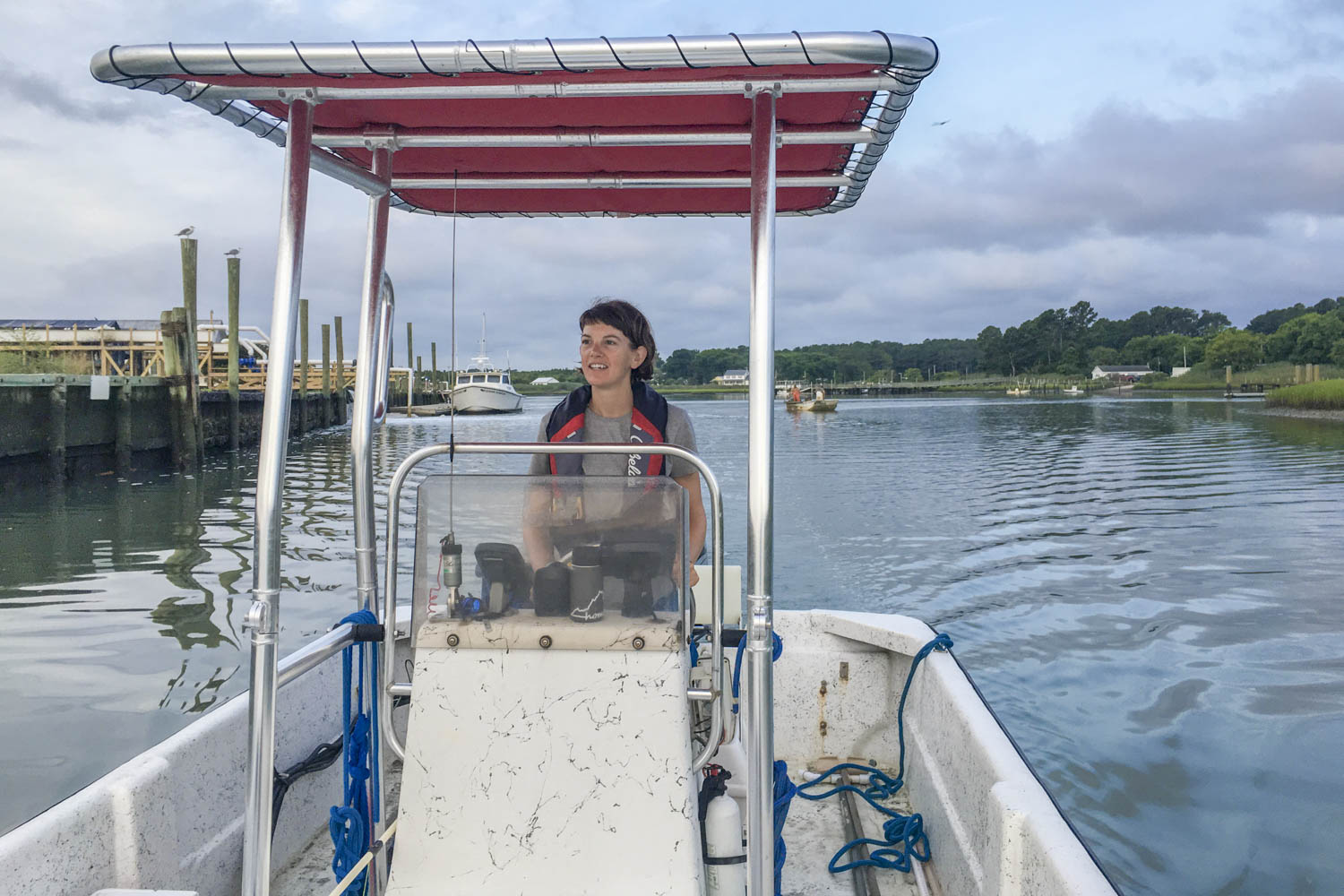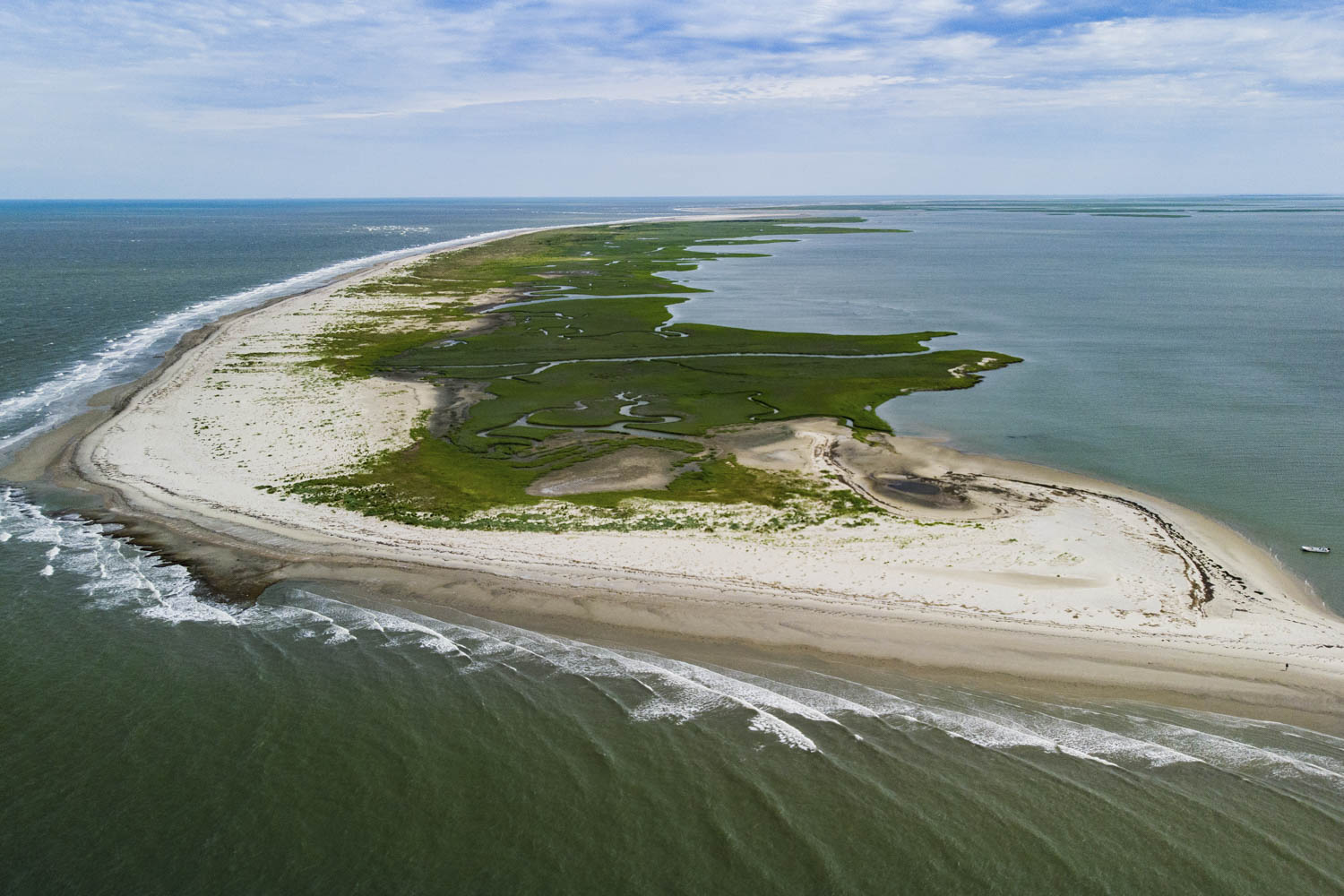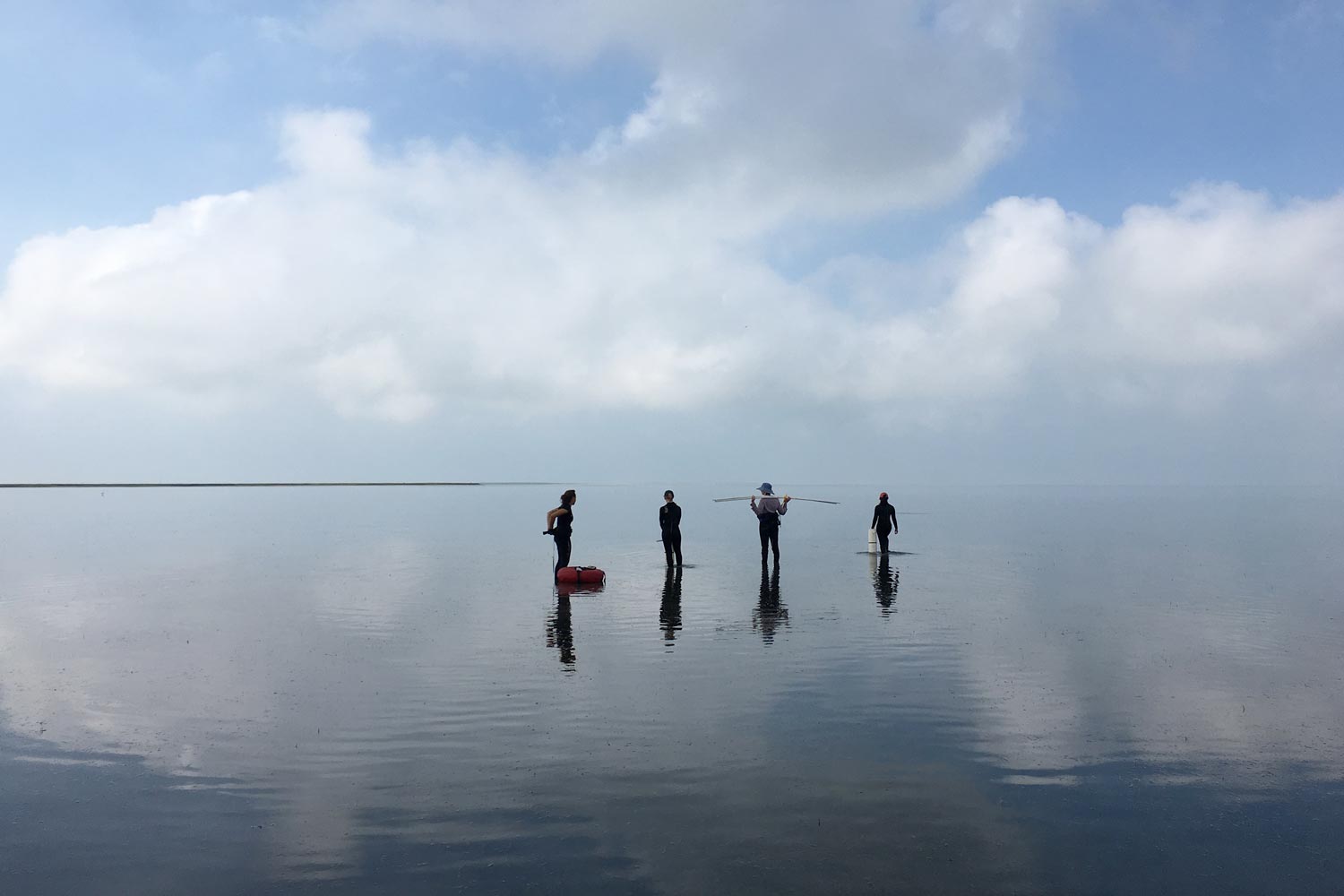Cora Johnston grew up on Virginia’s Eastern Shore, where she developed an early love for coastal environments. After earning her bachelor’s degree in tropical and coastal ecology from Hampshire College in Massachusetts, she conducted research with the Smithsonian Institution in Florida while earning her Ph.D. in ecology at the University of Maryland.
Today, Johnston is back on her beloved Eastern Shore, serving as the new site director at the University of Virginia’s Anheuser-Busch Coastal Research Center in Oyster. The job, which for Johnston is a passion, is multi-faceted, requiring long hours maintaining several field research sites, running the research facility, teaching, providing outreach and even operating boats and equipment for dozens of researchers from UVA and other institutions who study coastal ecosystems.
Here, Johnston tells her story for readers of UVA Today.
Q. Why did you decide to come to UVA and the Anheuser-Busch Coastal Research Center?
A. I was offered my dream career, working with a team of world-class scientists in a location with unparalleled natural beauty.
I wanted a position in research management because it keeps me closer to my first love – the logistics and problem-solving of daily science. I joined the ABCRC because I am excited to participate in research that is so directly relevant to the lives and livelihoods of our neighbors on the Eastern Shore.

Eastern Shore native Cora Johnston runs UVA’s Anheuser-Busch Coastal Research Center in Oyster. (Photo by Maya Wheeler)
I also recognized that a career with UVA comes with distinction that would give me a voice at the table in global discussions of coastal resilience and scientific education.
Q. How does the work conducted at center research sites match your own interests?
A. I am interested in the ecology of a changing world, especially the effects of global change on the redistribution of organisms and environments and the interactions between them. At the Nature Conservancy’s Virginia Coast Reserve, where we conduct most of our research with Long-Term Ecological Research grants from the National Science Foundation, similar patterns of change are studied across many scales of time and space. Our long-term data is the best way to document those changes.
My earliest research experiences were on the barrier islands of Virginia. I’ve tested blue crab survival in seagrass, surveyed oyster reef communities and studied climate change in grassy wetlands. Boating the coastal cross-section from the lab to our far sites on the barrier islands is like passing through a life-size timeline of my [curriculum vitae]. That connection to our diverse systems keeps me incredibly excited by all of the studies underway at our lab.
Q. What is special about the seaside bays of the Eastern Shore?
A. The Eastern Shore’s coastal marshes, lagoons and barrier islands present a rare pristine landscape. I grew up here, so they have been my life’s backyard. Spending the past decade exploring ecosystems as diverse as deserts in Nevada and islands in the central Pacific simply highlighted for me just how incredible the coastal barrier system of Virginia is and solidified my desire to base my scientific career in the region.
I saw more bald eagles in my first two weeks at the ABCRC than I’ve seen across the rest of the United States in the past 15 years. The wonderfully preserved state of Virginia’s coastal barrier system and low population of the Eastern Shore gives us the rare opportunity, as researchers, to study coastal processes under minimal human influence. This allows us to develop a baseline against which to assess coastal change throughout the world.
Q. What are your duties as site director?
A. I coordinate the research programs conducted throughout the Virginia Coastal Reserve. This means that I get to think broadly about coastal sciences every day. One day I help a hydrologist select suitable sites for a new study; the next day I help an intern design and construct fish traps. It is not unusual for me to step off a boat at 10 a.m. and walk into a board meeting at 11 a.m. In back-to-back phone calls, I find myself explaining land access regulations to a new researcher and marsh erosion models to a town council member.
When I am not coordinating research, I lead our outreach and education programs. I give presentations to visitors and community groups, but we also train teachers, mentor interns, provide research programming and support local education initiatives. As the director of education and outreach, I am working to establish learning objectives and outcomes to guide future iterations of our diverse programming.

UVA researchers conduct long-term studies on the barrier islands and seaside bays of the Eastern Shore. (Photo by Hunter Hall and Evan Kutsko)
A joy of this job is that I am in the trenches of scientific research, but in a role that is very diverse, shifting to meet many different needs. Within the first few months as site director, I have used every skill in my arsenal. My ideal day is fast-paced and full of problem-solving, so every day at the ABCRC has been incredibly gratifying.
Q. What do you plan to accomplish as the site director over the next several years?
A. One of my primary goals as site director is to help reveal the relevance of our research to the broader community through enhanced outreach.
In terms of education, my goal is to develop programs that expose local students to coastal systems, while teaching the practical value of the scientific process. By exposing students to real science early and often, I hope to help diversify the pipeline of students entering STEM – a more achievable solution than working from the top.
We also have big dreams of expanding on the lab’s long-term research tradition, to become a nucleus of discourse on integrative science and coastal resilience. Perhaps most exciting for me is the prospect that by entering this position so early in my career, I have the opportunity to dream big for our facility. I have lots of goals for the next few years, but with the opportunity to think on the scale of an entire career, I can afford to reimagine our ability to shape research and education through the ABCRC and the Virginia Coast Reserve-Long-Term Ecological Research enterprise.
Media Contact
Article Information
July 19, 2018
/content/qa-new-coastal-research-center-director-comes-home-her-dream-career

